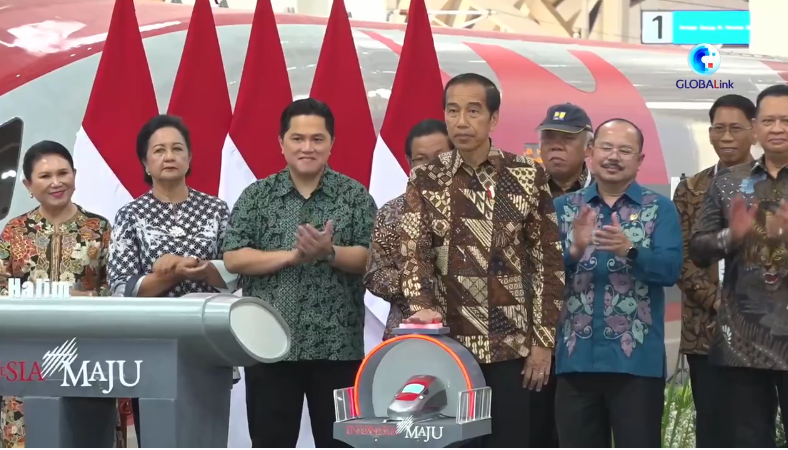JAKARTA – Indonesia has entered a new era of transportation with the launch of its first high-speed railway (HSR) on October 1. The HSR connects Jakarta and Bandung, two major cities on the populous island of Java, and reduces the travel time from more than three hours to just 40 minutes. This is a remarkable achievement for Indonesia, which has long suffered from traffic congestion and poor infrastructure.
The HSR is also a milestone for the cooperation between Indonesia and China, as it is the first overseas HSR project built by Chinese companies under the framework of the Belt and Road Initiative (BRI). The BRI is a global development strategy proposed by China in 2013 to enhance connectivity and cooperation among countries along the ancient Silk Road routes and beyond. Indonesia, as the largest economy and the most populous country in Southeast Asia, is a key partner of China in the BRI.
The Jakarta-Bandung HSR project was initiated in 2015 when Indonesian President Joko Widodo visited China and signed a memorandum of understanding with Chinese President Xi Jinping. The project was jointly undertaken by a consortium of Indonesian state-owned enterprises and China Railway International Co., Ltd., a subsidiary of China Railway Group Limited. The construction of the HSR faced many challenges, such as land acquisition, environmental protection, geological conditions, and the COVID-19 pandemic. However, with the joint efforts of both sides, the project was completed on schedule and met the international standards of safety, quality, and technology.
At a special ceremony on October 1, President Widodo declared the start of the HSR’s official operation, saying it marked the modernization of Indonesia’s transportation mode. He also expressed his gratitude to China for its support and cooperation in the project and said he hoped that the HSR would bring more benefits to the people of both countries. President Xi sent a congratulatory message to President Widodo, saying that the HSR was a symbol of the friendship and mutual trust between China and Indonesia and a model of high-quality BRI cooperation. He also said he looked forward to working with President Widodo to deepen the comprehensive strategic partnership between the two countries and promote regional peace and development.
The Jakarta-Bandung HSR is not only a flagship project that synergizes the BRI and Indonesia’s vision of the Global Maritime Fulcrum, but also a catalyst for further development of Indonesia’s railway system. According to Indonesia’s National Medium-Term Development Plan 2020-2024, the country plans to build more than 3,000 km of railways across Java, Sumatra, Sulawesi, Kalimantan, and Papua by 2024. The HSR will serve as a backbone for these railway networks, connecting major cities and regions, boosting economic growth, creating jobs, improving people’s livelihoods, and reducing carbon emissions.
The Jakarta-Bandung HSR is a testament to the win-win cooperation between Indonesia and China, and a demonstration of the benefits of the BRI for all participating countries. As President Widodo said at the ceremony, “This is not only a railway project, but also a dream come true for Indonesia.” The HSR will surely bring more opportunities and prosperity for Indonesia and its people in the future. (ZI)

